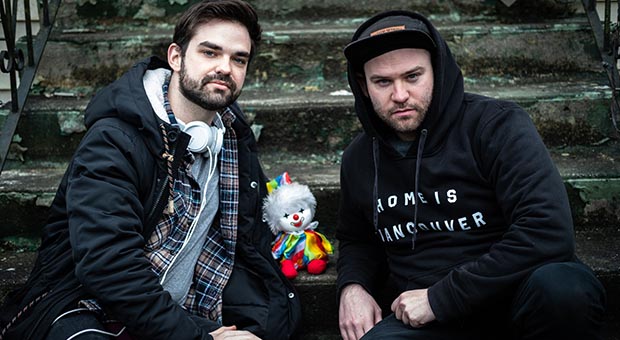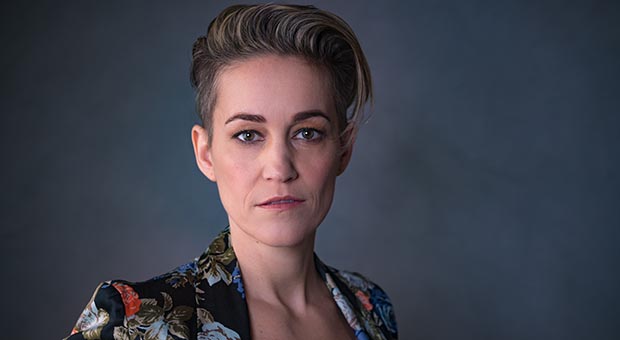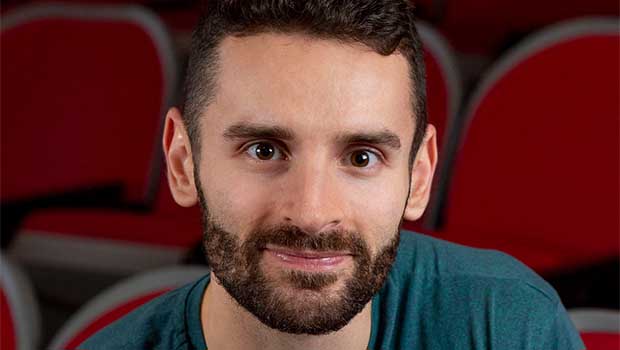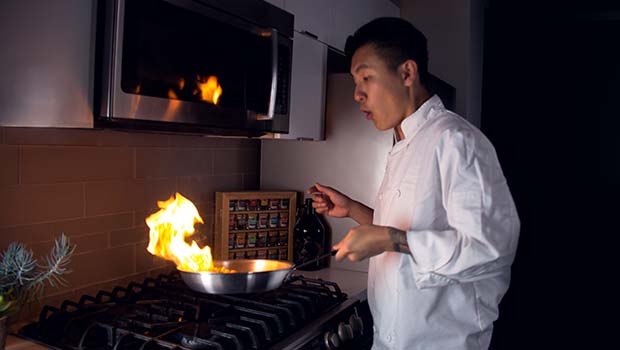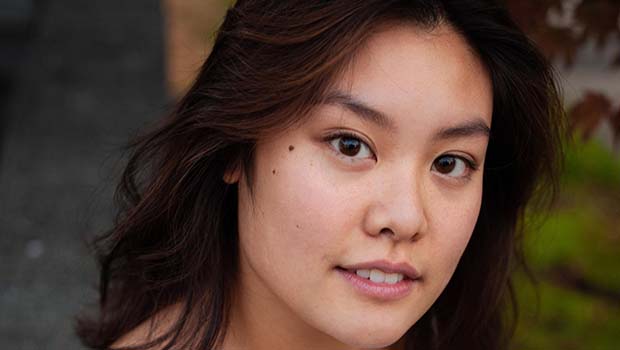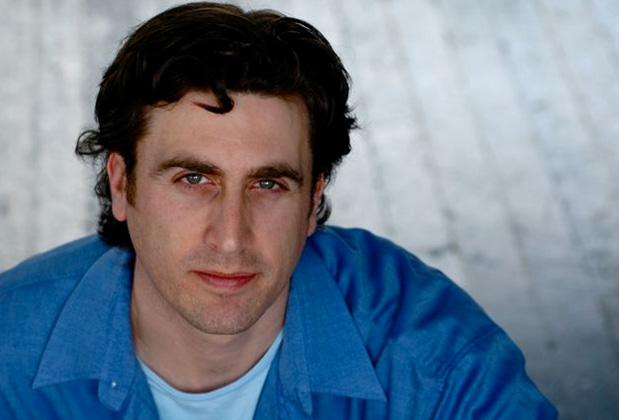
06 Apr The Biz Interview: Jesse James Miller – Director of Becoming Redwood
Canadian filmmaker Jesse James Miller has a diverse set of directing, writing, and editing credits in television (Captain Starship, 4Real), documentary films (Uganda Rising), and feature films (The Seamstress, My American Exodus). His newest effort as a writer and director is the drama Becoming Redwood. He spoke with us about the film and his creative process in putting it together.
Can you briefly walk us through your creative process for the production from the early stages (initial ideas, writing, etc.) all the way to the theatrical release of Becoming Redwood?
I wrote Becoming Redwood in 1998 while living in Los Angeles. I had written a script prior and felt it wasn’t deep enough and as a writer I needed to go further. So, I decided to delve into my own past and that lead me to Redwood. I had parents that divorced, that had come from the U.S to Canada during the Vietnam war. I had searched for ways of getting them back together and did believe I could beat Jack Nicklaus. Not in the way Redwood believed, but we shared very similar thought processes and the script took off from there. I wrote the first draft that year and received some interest at an agency in Los Angeles. Ultimately however, I felt as a director and writer I wasn’t ready and neither was the script. For the next half decade I spent my time honing my craft as a writer/director as well as an editor and after many re-writes of Redwood I shopped it around with my agent in Vancouver, Barbara Bird.
There was interest again, but the Canadian model’s didn’t make sense to me. The script was too polished to enter the telefilm/development world and the grant system itself was foreign to me. I wanted to follow the private financing model which I believed at the time would give me more creative control. I found out Chad Willett and Joely Collins were going to start a new company (StoryLab Productions) and were looking for a script. They read it and loved it. We agreed on the private financing system and away we went. I happened to be directing a feature documentary (The Good Son: The life of Ray “Boom Boom” Mancini) at the same time the financing came in for Redwood and did both films at the same time. Pre-Production and Casting happened in June/July of 2011 and Redwood went to camera in Late July and all of August. Post Production was great as my ratio was very low and I know the editor very well. Charlie Renfrew is an great friend of mine and we work well together. Schaun Tozer came on board to compose and we work very well together as well. The film was done in December of 2011 and sound/music/color correction was finished by April. The film then hit the festival circuit in September of 2012, opening the Edmonton Film Festival, winning the jury prize, then off to VIFF, winning the most popular film award. Now it’s about to be theatrical released across Canada.

What themes and ideas do you want the audience to think about from watching the film?
That love can change everything. It might not change things the way you thought, but it’s the only positive way forward.
What was the most challenging sequence for you to film?
There were very few, but the 18th hole at Augusta scene was written with the gallery/crowd lifting Redwood onto their shoulders, a big celebratory moment. We didn’t have the money for extras in that scene or any time, so modifying that feeling without visual support was difficult for me, however it worked in the end.
You have a diverse background as a director that has included documentaries, TV series, and dramas. How does your preparation change if you are shooting a drama like Becoming Redwood vs. a documentary like The Good Son or a TV series like Captain Starship?
Preparing for different genres is why I do them. It’s very exciting for me to step into different worlds. However it all goes back to story in whatever your directing. So my preparation for any film, whether it’s fiction or non-fiction is delving as deeply as I can into the story. Knowing it’s elements, it’s characters. For non-fiction these are real people so that preparation is a bit different than the casting process in fiction, however it’s still about finding real moments, real people.
Which accomplishments are you most proud of from each filmmaking experience that you’ve had and what are the most important lessons you’ve learned?
I’m very proud of Becoming Redwood for enduring the many years of that’s scripts growth. It was hard, but I kept going and it’s paid off with a beautiful film that I’ll always be very proud of. For The Good Son, it’s just such an amazing film because of it’s subject matter – Ray “Boom Boom” Mancini. He allowed me to enter his life and was very open during the process, no matter if it was painful to him or not, he was open. I’m very grateful to him for that experience.
The most important lesson I’ve learned is to never panic. Even when you are, never show it. The minute that happens you might as well go home and close shop because it will never show you the way through hard times.
From your perspective, what are the keys to creating effective drama in a film or a documentary?
Well for one thing you need to know where those dramatic moments are and figuring out the best way to present them. With Redwood it was understanding those silent introspective moments with my character Redwood and drawing those moments out properly. To effect drama I decided to break the 4th wall and have Redwood look directly at the audience, sometimes in total silence, sometimes with a line. It was a chance, but I found it to be very effective for his character and heighten the dramatic aspect the film needed.
With The Good Son it was making sure I approached the death of both Ray’s brother and Deuk-Koo Kim with respect. Nothing ever over the top in those moments, so lots of mindfullness as a filmmaker. With documentary it’s different however when it comes to effecting drama. Your job, in my opinion, is to create a comforting environment for them to express themselves and then get out of the way.

Which steps can directors take to build positive working relationships with their cast and crew during the making of a film?
It’s all about trust and creating a safe environment for the actors or your subjects. So for crew it’s for me to lead in that example and make sure that happens. That is just a directors job whether it’s fiction or non-fiction. With actors it’s essential for me to make sure they feel safe to express themselves in their work. With subjects in documentaries, if they don’t trust you, you have no film.
Who and what were your major inspirations for becoming a director?
I found directing through a lot of people. Because I’m a late bloomer and didn’t fully understand early in my life that being an artists is not a choice, I attribute most of my inspiration to my parents who never questioned my own choices. As crazy as they were. Then one day I found my wonderful wife, Jennifer Copping who’s continued that support exponentially, and finally, Francois Truffaut. 400 blows also changed my life.
Are there any authors or specific books that have been influential in your development as a filmmaker?
Walter Murch’s In the Blink of an Eye. Sidney Lumet’s Making Movies. Nikolai Gorchakov’s Stanislavsky Directs.
What is the biggest obstacle facing independent filmmakers today?
I think it’s getting your work seen at the next level. Studios control theatres, have massive P&A budgets and the film festival route has changed. So there’s little room for indie films to truly break through. However, it’s an exciting time as well. Technically equipment has never been better or cheaper and with new distribution channels and funding possibilities via the internet, there is a new world coming. We just have to be patient, open minded and continue doing great work. Great work always shines through.
What advice would you offer to aspiring directors who are looking to get started in the industry?
Learn how to write, find a great editor and get a good lawyer.
Are there any upcoming projects that you’re working on that you’d like to mention?
I’m writing two feature film scripts and starting a re-write on a feature script I’m shooting this summer in the U.S. I’ve also started a new production company called Profile Films with two fellow filmmakers in Vancouver and we have a few projects in development that are starting to find there legs and could go to camera soon as well.
Becoming Redwood opens in Vancouver on April 26th, 2013. For more information on the film, please visit BecomingRedwood.com.

